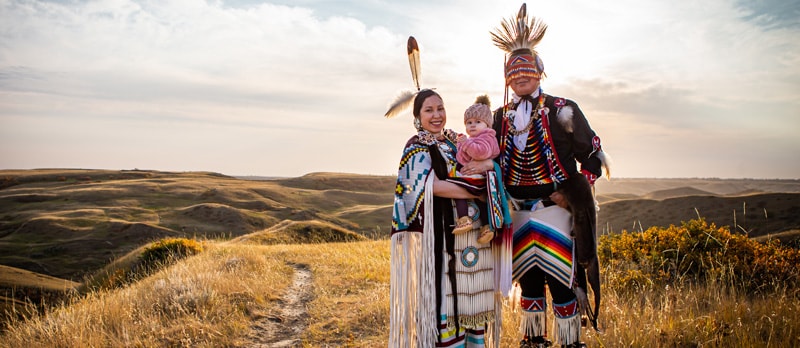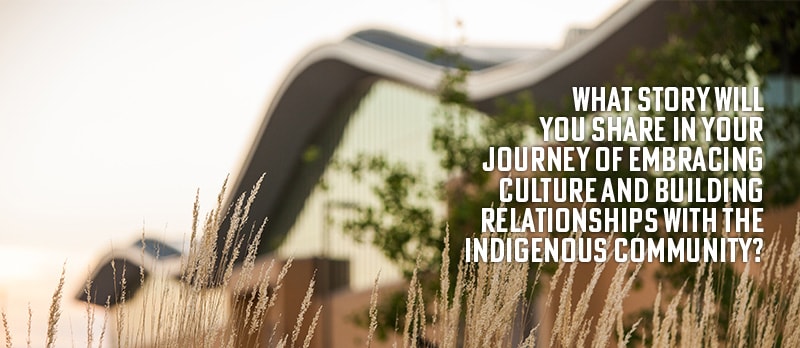
Our Collective Story: Coming Together in a Holistic Way
Through the collaborative work and shared leadership that went in to developing Coming Together in a Holistic Way: Lethbridge College Niitsitapi Strategy, it was important for us to create our college’s collective story merged with Niitsitapi’ksimpstaan (Real Thinking).
Indigenous Services envisions a space of Indigenous cultural inclusion and decolonization of the academic institution; in our day-today responsibility of supporting student success, we understand what it is like to be Indigenous. Some thoughts that came to mind in the process of formulating this strategy and bringing it to a full institutional level led to us ponder the hard conversations and ask:
- Could we be MORE than just a territorial acknowledgement?
- Could we utilize INDIGENOUS CULTURE AS A FOUNDATION FOR INNOVATIVE CHANGE of the traditional institutional structure of education?
- ARE WE READY to weave aspects of cultural perspective, knowledge and competency into the academic curriculum and the college as a whole?
The answer was, and still is, YES!

Through our internal engagements, we provided awareness of honest accounts of the dark history of education for Indigenous people through Indian Residential Schools as well as the current diverse perspective of resilience carried by Indigenous students in their commitment to attaining higher education. Our Indigenous Services team is the epitome of diversity; thus, another piece of our internal engagement involved modelling what it would look like to be in a decolonized space. We took some time to share who we are as individuals, not based on our employee titles, but as people of the communities to which we belong. Each team member encompasses differences in the communities we represent, and each of us brings our stories, our identities, our lived perspectives and the pieces of cultural knowledge we carry to our work and lives. In sharing our diverse voices, we hoped to show the strength that comes from embracing difference by creating a place for people to be vulnerable in order to succeed and be resilient. By connecting with our colleagues through sharing who we are on a personal level, we hoped to encourage thoughts of what it might be like for Indigenous students to realize an identity of confidence and of belonging while on their post-secondary journeys at Lethbridge College.
The opportunity to develop a Niitsitapi strategy to guide the college forward allowed us to reflect on and re-access our goals. Missing in our earlier Niitsitapi Indigenization Plan were the voices of our college community. While we did provide recommendations from our perspective, we felt it was essential to also hear stories from the college community to gain insight into our collective level of cultural knowledge respective to Indigenous peoples, their communities, and historical and current viewpoints. The perspectives of our college staff and faculty were a key starting point as we began work on developing our strategy. Establishing our college’s cultural competency would provide clear direction on where to begin reconciliation efforts. What guidance would come from our Indigenous Services area? What are we currently doing and what do we hope for the future? What would we need from external Indigenous community stakeholders? How would we know what to ask of them if we did not first know our needs?
We hope through our Coming Together in a Holistic Way: Lethbridge College Niitsitapi Strategy, we can assist in supporting a culturally inclusive environment.
